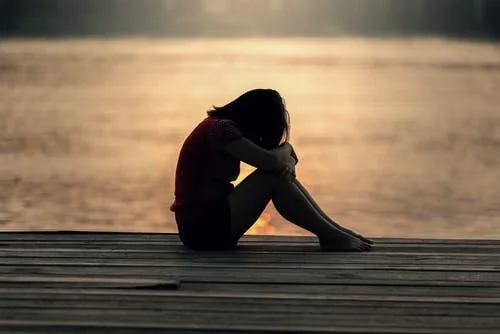Coping with Grief and loss
Grief (noun)
keen mental suffering or distress over affliction or loss; sharp sorrow; painful regret.
a cause or occasion of keen distress or sorrow
Some key points about a grief are;
Grief is a response to the loss of someone or something that was important.
Grief can occur after a death, divorce, illness or other significant loss.
Grief can affect your physical and mental health.
Grieving is an individual process and it is different for everyone.
Everyone reacts differently to grief, with some common feelings being;
sadness
shock
denial
numbness, a sense of unreality
anger
guilt
blame
relief
Grief is the natural emotional response to not only the death of a loved one (family member or friend), but can also occur after a serious illness, a divorce or any other significant loss for that matter (such as loss of employment).
Grief often involves intense sadness, and sometimes feelings of shock, numbness, denial and even anger....all which are perfectly normal. It is important to remember you need to allow yourself to acknowledge what you are feeling, rather than trying to ignore it. Remember...it's okay to not be okay you are not alone in this.
Support from others is critical to healing after a breakup or divorce. You might feel like being alone, but isolating yourself will only make this time more difficult. Don’t try to get through this on your own......connect face-to-face with trusted friends and family members. People who have been through the loss of a loved, painful breakup or divorce can be especially helpful. They know what it is like and they can assure you that there is hope for healing. Frequent face-to-face contact is also a great way to relieve the emotions you are feeling and perhaps help regain balance in your life.
Surround yourself with people who are positive and who truly listen to you. It’s important that you feel free to be honest about what you’re going through, without worrying about being judged, criticised, or told what to do or be feeling. Everyone's grief is unique to them.
Seek support and guidance from a professional if reaching out to others doesn’t come naturally to you or consider joining a support group – what is important is that you have a place where you feel safe and comfortable opening up.
Healing happens over time....if you are experiencing grief or loss, you may always carry this sadness and miss a person once they are gone, but the painful, intense feelings will start to subside – you will start to learn to cope and over time, it gets easier to deal with life. Remember, there is no time limit on grief....it may take someone six months and others six years. Grief often comes and goes, and can be triggered by a smell, a sound or something you see, and especially on anniversaries. Allow yourself to feel that grief, even if only for a moment, then release it again.
It is important to make sure you are also taking care of yourself – get some regular exercise, eat healthy food and make sure you have enough sleep. Sometimes easier said than done, but ultimately, if you're looking after your body, you are also looking after your mental well-being.
If you are experiencing persistent feelings of sadness and despair, and are unable to experience happiness, you may be experiencing the symptoms of depression. If your feelings are getting in the way of your everyday life, then it’s important to seek help.
If you, or someone you know needs support, please contact any of the following organisations;
Headspace offers excellent resources to help you cope
Parentline — 8 am to 12 midnight, 7 days a week, call 13 22 89
Australian Centre for Grief and Bereavement — bereavement counselling and support services. You can call 1800 642 066
MensLine Australia — 24 hours, 7 days. Call 1300 78 99 78
Suicide Call Back Service— 24 hours, 7 days. Call 1300 659 467
Kids Helpline – 24 hours, 7 days a week. You can call 1800 55 1800

